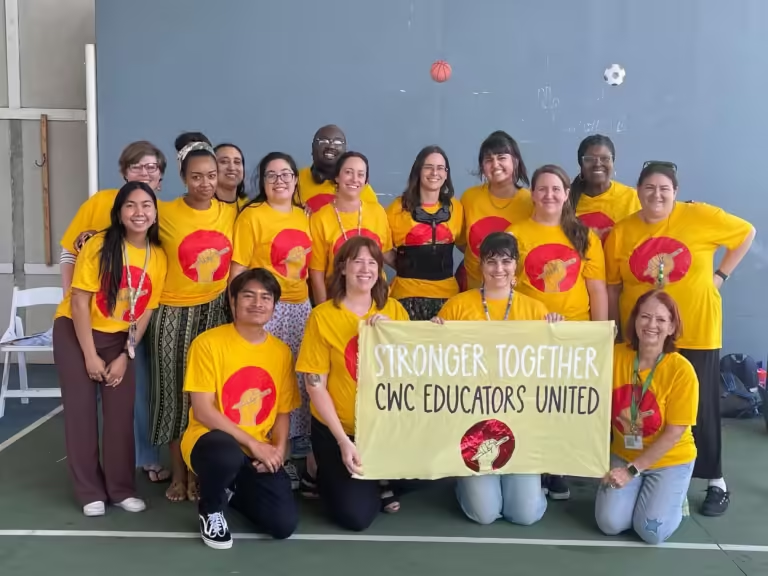Jury convicts on all 34 counts, what’s next?
Donald Trump paid $420,000 to cover up sexing a porn star, to deceive voters in the 2016 election. And on May 30 his lifetime of crime — filled with mafia kickbacks, obstructions of justice, tax and bank fraud, sexual assault, and wage theft — finally caught up with him, as 12 jurors found him guilty on 34 felony counts of business fraud to cover up the cover-up.
The evidence in the five-week trial was overwhelming, and for the most part uncontested. Even the orchestrated GOP wave of vitriol attacking the decision noticeably failed to contest them. Instead, GOP leadership echoed Trump’s long-standing practice of wholesale attacks on the American legal system and threats of retribution against Democrats.
“Time for Red State AGs and DAs to get busy,” Georgia representative Mike Collins tweeted in the opening salvo. And GOP House Speaker Mike Johnson appeared confident that the justices Trump appointed to the Supreme Court and their allies would rescue him from responsibility.
“I do believe the Supreme Court should step in, obviously,” he said on Fox & Friends the day after. “I think that the justices on the court — I know many of them personally — I think they’re deeply concerned about that as we are. So I think they’ll set this straight,” he said. “This will be overturned, guys, there’s no question about it. It’s just going to take some time to do it.”
But the public wasn’t on board. Voters in a Morning Consult poll believed Trump was guilty by a 55-34% margin, they believed he should drop out of the race by a 51-43% margin, and seven in 10 said it is very or somewhat important that verdicts be reached in three other Trump felony cases before the November election — cases that Trump’s GOP allies on the Supreme Court and elsewhere have been blocking for months. Similar results came from CBS/YouGov and ABC/Ipsos as well.
The GOP vitriol rang hollow in light of what happened at trial. The facts presented were clear, and compelling, with a wealth of corroboration. Even the paltry two witnesses called in Trump’s defense strengthened the case against him. But the core of the case was simple: Trump’s long-time friend David Pecker, then-publisher of the National Enquirer, testified to conspiring with Trump to catch and kill unfavorable stories, while documentary evidence showed that Trump paid for one of them by reimbursing his then-fixer, Michael Cohen, with fraudulent checks for non-existent legal services. The fraudulent checks and related invoices and ledger entries were misdemeanor offenses under New York law, bumped up to felonies in service of concealing another crime. As the financial capital of the world, there are hundreds of such cases each year in Manhattan.
Trump’s defense team tried to paint Cohen as the real criminal, who pulled off the whole scheme in secret on his own, which the penny-pinching Trump happily paid for. But they offered no coherent narrative explaining how or why he could or would have done that. In fact, another Trump loyalist, Hope Hicks, testified that it would have been totally out of character for Cohen to secretly do so.
Trump’s Missing Counter-Narrative
The lack of a counter-narrative proved fatal to Trump’s case — and was quite revealing. Trump has survived politically on the strength of various narratives drowning out unwanted facts — painting immigrants as rapists and murderers, for example, when their crime rates are substantially lower than native-born Americans, and they’re more likely to be crime victims than perpetrators. But in this case, Trump’s obsessions got the better of him. His narcissistic insistence on his own perfection led him to micro-manage his case to his own detriment, beginning with having his lawyers deny everything, starting in their opening statement.
This included denying sex with adult actress Stormy Daniels, just as he falsely denied raping writer E. Jean Carrol, according to a civil court finding last year. His visceral hatred of anyone challenging him led to fierce, but unfocused cross-examinations of both Daniels and Cohen that backfired spectacularly, substantially strengthening their direct testimony, rather than undermining it. And the two witnesses called in his defense — one called solely to undermine Cohen — both undermined his case instead. Finally, his fondness for those who speak well of him led to restrained cross-examinations of two key witnesses — David Pecker and Hope Hicks — whose core unrebutted testimony was devastating to his case. All these obsessions combined to subvert any possibility of creating a coherent counter-narrative that could have given a sympathetic juror a reason to not convict.
His hope now is to rally the GOP establishment in a unified attack on the verdict and the legal system as a whole as corrupt — a narrative that’s certainly believable given how long he’s managed to avoid responsibility. What’s laughable is the notion that he’s the cure, rather than the ultimate superspreader of the disease. While the facts were all against Trump, the GOP attacks on the verdict, adopting Trump’s narrative of a Joe Biden-directed weaponized justice system were absurd on at least seven other grounds, each a compelling counter-narrative to Trump’s Biden’s-out-to-get-me victimhood narrative:
1) Trump’s guilt has been self-evident since 2018, indicating the system has been biased in his favor, not against him. While everyone’s entitled to a jury trial, and specific charges differ between state and federal court, Trump’s guilt for the underlying crime was self-evident when the story first came out in 2018, and Trump was anonymously cited as an unindicted co-conspirator by Republican U.S. Attorney Geoffrey Berman. (As president, he couldn’t be indicted under DOJ rules.) As Cohen later told Congress, “I plead guilty in federal court to felonies for the benefit of, at the direction of, and in coordination with individual No. 1. And for the record, individual No. 1 is President Donald J. Trump.” Trump’s second attorney general, Bill Barr, tried to suppress any reference to Trump and even sought to undo Cohen’s guilty plea in the case.
2) President Biden had nothing to do with the case. It was brought independently in state court by Manhattan District Attorney Alvin Bragg, and Trump was only found guilty based on the unanimous verdict of 12 ordinary New Yorkers — jurors his attorneys had agreed to after dozens of potential jurors had excused themselves because they didn’t think they could be impartial.
3) Biden’s supposedly “weaponized” DOJ also indicted his own son, a Democratic senator and Democratic congressman. If Biden really had weaponized the DOJ against Republicans, he did a terrible job. On June 2 — the Monday after Trump’s guilty verdict — his only surviving son, Hunter, went on trial for a rarely-prosecuted gun violation brought by David Weiss, a Trump-appointed U.S. Attorney whom Biden allowed to stay on and did nothing to block. Instead, Biden’s attorney general, Merrick Garland, broadened Weiss’ power by appointing him special counsel at his request. In addition, on Sept. 22, 2023, Democratic Senator Bob Menendez was indicted on bribery charges, and on May 4, 2024, Democratic Congressman Henry Cuellar was charged with bribery and acting as a foreign agent. This pattern of indictments and prosecutions is utterly at odds with the claim of a politicized — much less a weaponized — Department of Justice.
4) There is nothing unusual — or necessarily political — about prosecuting former heads of state. Last year, Foreign Policy magazine noted that “despite claims that prosecuting Trump means a slide into autocracy, the indictment and conviction of former leaders in democratic and semi-democratic countries around the world is, in fact, quite common.” The magazine “found that at least 78 leaders in 53 democratic or semi-democratic countries—the vast majority of which have successfully held democratic elections following the indictments—have been indicted since 2000.”
5) Even if he’d been acquitted in this case, Trump’s criminal responsibility in other cases has already been recognized by leading Republicans. While Trump appointees on the Supreme Court have helped delay federal prosecution for his Jan. 6 criminal obstruction of the peaceful transfer of power by special counsel Jack Smith, the GOP Senate leader, Mitch McConnell, used the potential of criminal prosecution to excuse voting against impeaching Trump. He “didn’t get away with anything, yet,” McConnell said in a Senate speech on Feb. 13, 2021. “We have a criminal justice system in this country. We have civil litigation. And former presidents are not immune from being [held] accountable by either one.” Likewise, Georgia’s GOP Secretary of State Brad Raffensperger refused to go along with Trump’s illegal request to “find 11,780 votes” and has testified before two grand juries that indicted Trump — one convened by Jack Smith, the other by Fulton County DA Fani Willis. Similarly, Arizona GOP House Speaker Rusty Bowers refused to help Trump overturn the election in his state and testified about it before the House Jan. 6 Committee.
6) Trump has surrounded himself with criminals (several whom he pardoned as president) reflecting a personal indifference, if not hostility, to the law. As Fox Sports host Colin Cowherd explained on his own podcast, “Donald Trump is now a felon. His campaign chairman was a felon. So was his deputy campaign manager, his personal lawyer, his chief strategist, his national security adviser, his trade adviser, his foreign policy adviser, his campaign fixer, and his company CFO. They’re all felons. Judged by the company you keep. It’s a cabal of convicts. If everybody in your social circle is a felon, I don’t think it’s rigged. I don’t think the world’s against you.”
7) Trump himself has repeatedly tried to weaponize the justice system. In 2016, Trump ran explicitly on a platform that included jailing Hillary Clinton for unspecified crimes, along with occasional threats to do the same to Obama and “the Bidens.” Chants of “Lock her up!” were a common feature of his rallies, which — despite his recent denials — he repeatedly endorsed. He also repeated the threat during a presidential debate. Once in office, he tried to follow through but was blocked from doing so. On Nov. 3, 2017, he publicly called for the DOJ to investigate Clinton over “all of the dishonesty” on Twitter. But he wasn’t just blowing off steam in public. A year later, the New York Times reported that in the spring of 2018, Trump told White House counsel Don McGhan he wanted to order the DOJ to prosecute Clinton as well as former FBI director James B. Comey. According to the Times, “Mr. McGahn had White House lawyers write a memo for Mr. Trump warning that if he asked law enforcement to investigate his rivals, he could face a range of consequences, including possible impeachment.”
The Bottom Line
The bottom line to all seven of these counter-narratives is that Trump himself is the rule-breaking wannabe tyrant, as should have been obvious to everyone all along. So the question remains: how aggressively will Democrats push any of them? And how will they figure into a larger election strategy? Republicans understand the importance of narratives much better than Democrats do. Narratives matter much more than facts. If facts don’t fit a narrative, they’re easily ignored or quickly forgotten. Narratives matter enormously in shaping what people are thinking about in the first place, as well as how they see it.
Right now, Biden and Trump are polling neck-and-neck. This is largely because of negative narratives about Biden’s handling of the economy, in contrast with positive narratives when Trump was president, regardless of what economic statistics actually show. For example, an early May Guardian-Harris poll found that 56% think the U.S. is experiencing a recession — meaning the economy is shrinking, when it’s actually growing, 49% believe the S&P 500 stock market index is down for the year, when it’s actually up by more than 12% and rose about 24% last year, and 49% believe that unemployment is at a 50-year high when it’s actually near a 50-year low.
Biden would very much want to run on what he’s actually accomplished, and what he’s long-term committed to: “growing the economy from the middle out and bottom up — not the top down.” That stands in stark contrast with Trump’s record of massive tax-cuts for the rich, which he’s promised to do once again if elected in November. But it’s challenging to run on accomplishments that people don’t even believe exist.
Trump’s criminal convictions exist. And people know it. And they’re connected to how he governed in the past and how he’d govern again — serving himself first and foremost, with special favors for those who helped him out in return. This is how Trump has always operated, and it’s always resulted in a lot of people getting hurt — workers robbed of wages, contractors stiffed, paid pennies on the dollar, companies gone bankrupt, hundreds of thousands of excess COVID deaths compared to other similar countries. This is Trump’s actual record. This is his story. This is the narrative that could prove key to defeating Trump in November: The same kind of criminal behavior that just got him convicted in New York is typical of how he deals with everything — always manipulating, always covering things up, always looking for an angle for himself, regardless of whatever rules he may break, or the cost it may force others to bear.












